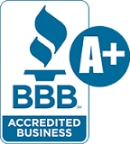Empowering Victims: Understanding and Utilizing the Violence Against Women Act (VAWA)
Within the realm of legal protections for victims of domestic violence and sexual assault, the Violence Against Women Act (VAWA) has played a pivotal role in offering support and resources to those affected. We will explore the significance of VAWA, its core provisions, and how individuals can effectively utilize this law to attain legal status and seek justice. Additionally, we will highlight the commitment of the law offices of Alcock and Associates to assisting individuals throughout this process, emphasizing our dedication to affordable fees and payment plans.
Understanding VAWA:
The Violence Against Women Act (VAWA) was initially signed into law in 1994 with the aim of addressing and combating domestic violence, dating violence, sexual assault, and stalking. It recognizes the urgent need to protect and support victims while also holding perpetrators accountable for their actions.
Core Provisions of VAWA:
a) Protections: VAWA offers crucial protections to victims, regardless of their gender or immigration status. These protections include restraining orders to keep abusers at a safe distance, emergency assistance, and prohibited eviction or termination from housing due to being a victim of violence.
b) Immigration Relief: VAWA provides a path to legal status for undocumented victims of abuse or violence perpetrated by a U.S. citizen or lawful permanent resident spouse or parent. This provision creates the possibility for victims to self-petition for lawful residency without requiring the assistance or sponsorship of an abusive spouse or family member.
c) Funding and Support: VAWA provides financial aid to support the establishment and maintenance of shelters, legal services, and national hotlines. This funding ensures that meaningful resources are available for victims seeking protection and legal assistance.
















